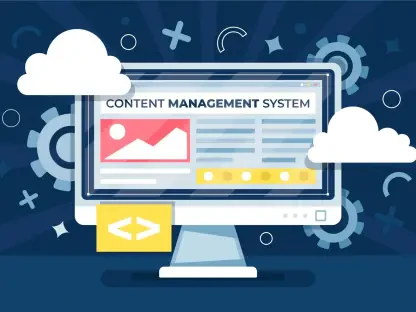Over just a few years, artificial intelligence (AI) has begun to reshape the digital marketing industry completely. According to Salesforce data, only 29% of marketers reported using AI in 2018. This figure reached 84% in 2020. Flash forward, and data from Statista suggests that this figure rose to 90% in 2022. Marketing is a multidisciplinary field, encompassing everything from creative ideation to data analysis and testing. AI can supplement, streamline, or entirely replace many tasks, allowing marketing teams to leverage AI to enhance productivity and improve marketing campaign results. As AI continues to proliferate into marketing, in-house teams can build and launch complex marketing campaigns without having to contract external help.
Invest in AI Training and Instruction
One of the primary steps to ensuring your team benefits from AI is to invest significantly in training and instruction. Provide thorough training programs to ensure your team comprehends AI technologies and their uses in marketing. These programs can be in various forms, such as online courses, workshops, and certification programs. The training should be comprehensive enough that team members become proficient in using AI tools for different marketing functions like content creation, SEO, and data analysis.
Proper training does more than equip the team with necessary skills; it instills a sense of confidence and competence. By understanding the inner workings and capabilities of AI tools, your team can better harness these technologies to achieve marketing goals. Moreover, well-structured training programs can serve as an ongoing resource, keeping teams updated on the latest advancements in AI and how these can be applied to evolving marketing needs. This, in turn, creates a culture of continuous learning and adaptation.
Evaluate and Select Appropriate AI Tools
The subsequent step is to carefully evaluate and select AI tools that best fit your marketing requirements. The wide array of AI tools available can streamline various marketing tasks such as content generation, SEO, and data analysis. Focus on tools that not only streamline these tasks but also integrate seamlessly with your existing marketing stack. Conduct comprehensive market research and consider tools that offer user-friendly interfaces, robust functionality, and reliable customer support.
Choosing the right AI tools involves a detailed assessment of their capabilities and how well they align with your business objectives. It’s crucial to involve key stakeholders from different departments during this process to ensure the tools selected meet collective needs. Look for AI tools that offer scalable solutions to handle increasing volumes of data and growing marketing demands, ensuring they can grow alongside your business. The right AI tools will not only make your team more efficient but also significantly boost the effectiveness of your marketing campaigns.
Start Small and Expand Gradually
Incorporating AI into your marketing efforts should be a gradual process. Begin by integrating AI tools into specific areas of your marketing efforts. For example, start with AI-driven content creation or data analysis. Once your team gains confidence and competence with these tools, gradually expand AI use to other functions. This phased approach helps in minimizing disruptions while enabling your team to adapt effectively.
Starting small allows you to have a controlled environment where you can monitor the performance of the AI tools and make the necessary adjustments. As your team becomes more comfortable and proficient, you can scale up the integration to other areas such as customer segmentation, automated marketing campaigns, and predictive analytics. This gradual expansion ensures that your team is not overwhelmed by the transition and can fully exploit the benefits of AI capabilities in various marketing functions.
Encourage Collaboration Between AI and People
Promoting collaboration between AI tools and your marketing team is vital for maximizing the benefits these technologies offer. AI can handle data-intensive tasks, allowing your team to concentrate on strategy, creativity, and innovation. Encourage your team to view AI as a valuable ally rather than a replacement. By doing so, they are more likely to embrace its use and integrate it seamlessly into their daily workflows.
To foster this collaboration, create an environment where both AI and human inputs are valued and leveraged. For instance, while AI can generate data insights, human team members can interpret these insights in the context of the business’s unique goals and customer base. This collaboration can lead to more nuanced and effective marketing strategies. Regular meetings and brainstorming sessions can help ensure that AI tools are being used effectively and that team members are continuously learning how to make the best use of these technologies.
Track and Assess Performance
Regular evaluation of AI tools and their impact on your marketing efforts is crucial for long-term success. Use metrics to gauge efficiency improvements, cost savings, and enhancements in campaign outcomes. Establish key performance indicators (KPIs) that align with your marketing objectives and use these to measure the effectiveness of AI integration. This ongoing assessment helps in identifying any gaps and making the necessary adjustments to improve performance.
Tracking performance also offers valuable insights into the ROI of your AI investments. By analyzing the data, you can determine whether the AI tools are meeting your expectations and delivering the anticipated benefits. This can also help in making data-driven decisions about further investments in AI technologies. Regularly sharing performance data with your team keeps them informed and aligned with the overall marketing goals, fostering a sense of ownership and accountability.
Foster a Progressive Culture
In just a few years, artificial intelligence (AI) has dramatically transformed the digital marketing industry. Back in 2018, only 29% of marketers reported using AI, according to Salesforce. By 2020, this number surged to 84%, and Statista data indicates it climbed further to 90% in 2022. Marketing, a field that blends creative ideation with data analysis and testing, is increasingly supported by AI. This technology can supplement, streamline, or even replace many tasks, enabling marketing teams to focus on being more productive and achieving better campaign results. As AI becomes more integrated into marketing, in-house teams are now capable of planning and executing intricate campaigns without the need for external agencies. AI’s ability to analyze vast data sets, predict trends, personalize customer interactions, and automate repetitive tasks allows marketers to concentrate on strategy and creativity. Consequently, the role of AI in digital marketing is not just supplementary but increasingly central to driving growth and efficiency in the industry.









